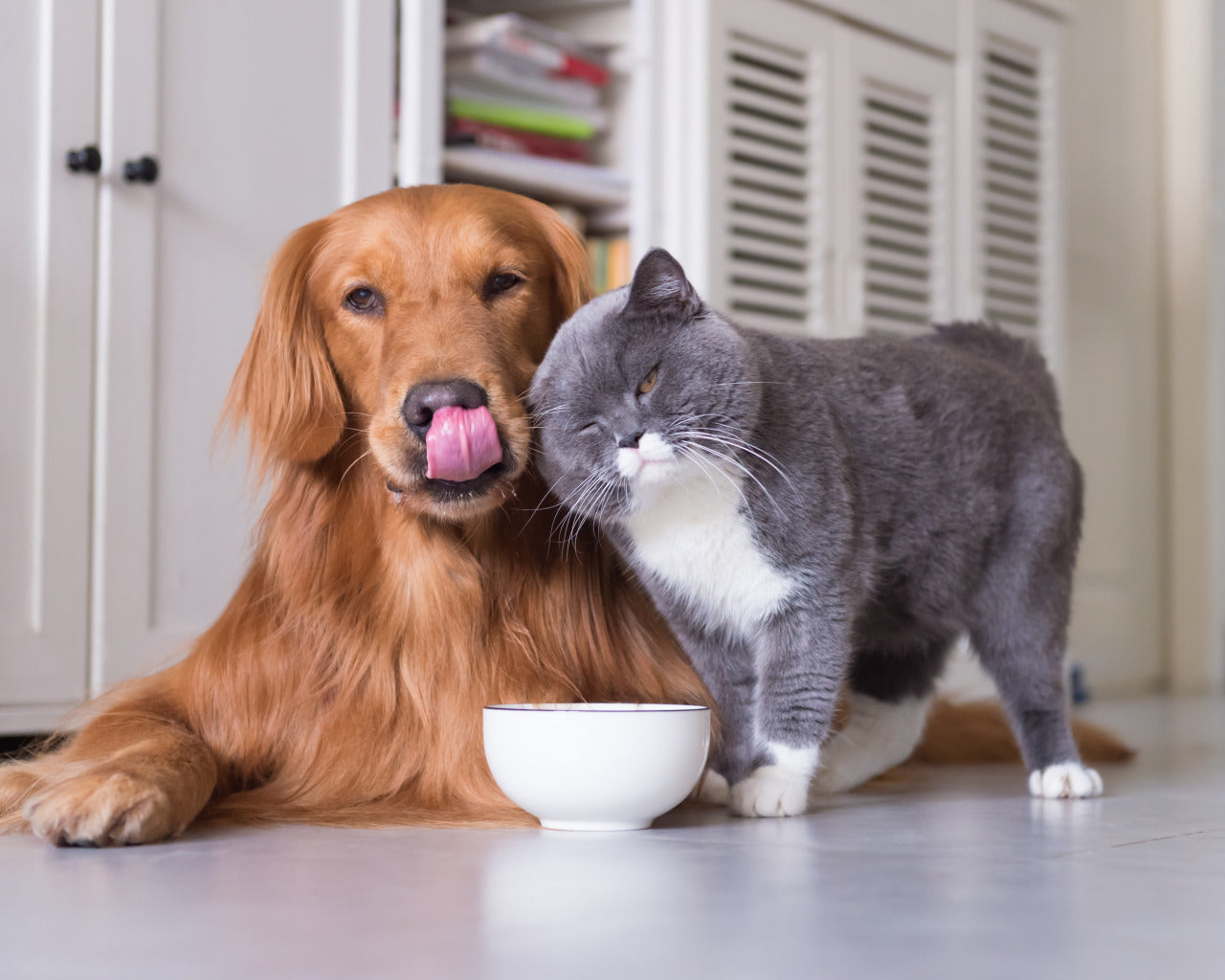I.Introduction
Dogs are cherished members of our families, bringing joy and companionship into our lives. As responsible pet owners, it's our duty to ensure their well-being and health. One common concern that can arise in the course of a dog's life is when they starts coughing and sneezing. These symptoms might seem minor, but they can be indicative of underlying health issues.
In this comprehensive guide, we'll delve into the common reasons why your dog might be coughing and sneezing, discuss home care tips to alleviate their symptoms, and explore when it's time to seek professional veterinary assistance. We'll also touch on preventive measures to minimize the risk of these issues in the first place.
II.Common Causes
Coughing and sneezing in dogs can have various underlying causes. Understanding these reasons is the first step in effectively caring for your furry companion. Here are some common reasons that can lead to coughing and sneezing in dogs:
- Respiratory Infections: Just like humans, dogs are susceptible to viral or bacterial infections that can affect their respiratory system. These infections can result in coughing and sneezing, often accompanied by flu-like symptoms.At the same time, owners should note that respiratory tract infection is a common symptom of dogs infected with canine parvovirus. In order to confirm whether a dog is infected with canine parvovirus, the safest way is to use the CPV Test Kit, which can be used at home without going to the hospital for examination.
- Allergic Reactions:Dogs can develop allergies to pollen, dust mites, food, or other allergens. These allergies can lead to sneezing and coughing, similar to allergic symptoms in humans.
- Environmental Irritants:Exposure to irritating odors, smoke, dust, or chemicals can cause coughing and sneezing in dogs. These irritants typically stimulate the dog's respiratory system.
- Cardiac Issues: Certain heart problems, such as valvular heart disease, can lead to fluid accumulation in the lungs, causing breathing difficulties and coughing.
III.Home Care
Home Care Tips for Dog Coughing and Sneezing
When your beloved canine companion starts coughing and sneezing, there are several steps you can take at home to alleviate their discomfort and promote a speedy recovery. Here are some essential home care tips:
- Maintain Fresh Air: Ensure that the area where your dog spends most of their time is well-ventilated. Good air circulation can help reduce indoor irritants that may contribute to coughing and sneezing.
- Ensure Quality Food and Water:Provide your dog with a balanced diet and access to clean, fresh water. Proper nutrition is vital for a strong immune system and overall health.
- Avoid Excessive Exercise:While regular exercise is essential for your dog's health, avoid strenuous activities during episodes of coughing and sneezing. Rest is crucial for recovery.
- Observe Your Dog's Behavior:Pay close attention to your dog's overall behavior and any changes in appetite, energy levels, or disposition. This information can be valuable when communicating with your veterinarian.
- Rapid CPV Test Kit:In order to rule out the possibility that your dog has canine microorganisms, you can do a CPV test at home to help the veterinarian’s judgment.
Discuss Medication Options (Use Under Veterinary Guidance)
It's important to note that while home care can help alleviate mild symptoms, the use of medications should always be discussed with and prescribed by a veterinarian. Administering the wrong medication or dosage can worsen your dog's condition. If your dog's coughing and sneezing persist or worsen, consult your veterinarian for appropriate treatment options.
Remember that every dog is unique, and what works for one may not work for another. Veterinary guidance is crucial to ensure that your furry friend receives the right treatment tailored to their specific condition.
By following these home care tips and seeking professional advice when necessary, you can provide the best possible care for your dog when they experience coughing and sneezing. In the next section, we will explore when it's time to consult a veterinarian for more serious cases.
IV.When Should You Go to the Vet?
While home care can be beneficial for mild cases of coughing and sneezing in dogs, there are certain symptoms that should never be ignored. If you notice any of the following symptoms in your dog, it's crucial to seek immediate veterinary assistance:
- High Fever: A significantly elevated body temperature can indicate a severe infection or underlying health issue. If your dog's temperature is well above the normal range, consult a vet immediately.
- Persistent Coughing or Sneezing: If your dog's coughing or sneezing continues for an extended period, worsens, or is accompanied by other concerning symptoms, such as difficulty breathing, immediate veterinary evaluation is essential.
- Significant Loss of Appetite: A prolonged refusal to eat can lead to weight loss and dehydration. This is a serious concern and requires prompt veterinary attention.
It's important to remember that dogs often hide their discomfort, so when they exhibit visible signs of illness, it can indicate a significant issue. Timely veterinary care can make a crucial difference in diagnosing and treating underlying health problems.
Veterinarians are trained to recognize and address a wide range of canine health issues. They can perform diagnostic tests, prescribe appropriate medications, and recommend further treatment options based on your dog's specific condition. Don't hesitate to reach out to your veterinarian if you have any concerns about your dog's health.
By being vigilant and seeking veterinary care when necessary, you can ensure that your dog receives the best possible treatment and the opportunity for a swift recovery. In the next section, we will explore preventive measures to minimize the risk of coughing and sneezing in your dog.
Precautions
As responsible dog owners, taking proactive steps to prevent health issues in our pets is essential. Here are some key precautions you can take to minimize the risk of your dog experiencing coughing and sneezing:
- Regular Veterinary Check-ups: Schedule and attend regular check-ups with your veterinarian. These visits are crucial for early detection of potential health problems and ensuring your dog is up-to-date on vaccinations.
- Vaccination:Ensure that your dog receives the necessary vaccinations as recommended by your veterinarian. Vaccinations can protect your dog from serious respiratory diseases, such as kennel cough.
- Maintaining a Healthy Lifestyle: Provide your dog with a balanced diet, regular exercise, and a clean living environment. A healthy lifestyle promotes a strong immune system, reducing the risk of infections.
- Avoiding Allergens:If your dog has known allergies, work with your veterinarian to identify and manage allergens. This may involve dietary adjustments or allergy medications.
Preventive care plays a crucial role in ensuring your dog's long-term health and happiness. By proactively addressing potential health risks and following your veterinarian's recommendations, you can significantly reduce the likelihood of your dog developing coughing and sneezing episodes.
It's important to remember that while some health issues are beyond our control, preventive measures can go a long way in safeguarding your furry friend. By taking these precautions, you're actively contributing to your dog's overall well-being and quality of life.
In the concluding section, we will summarize the key points discussed in this comprehensive guide and reiterate the importance of vigilant care and regular veterinary visits for your dog's health.
Conclusion
In this comprehensive guide, we've explored the important topic of dog coughing and sneezing, emphasizing the significance of canine health and well-being. Here are the key points to remember:
- Dogs can experience coughing and sneezing due to various common causes, including respiratory infections, allergies, environmental irritants, and heart issues.
- Dogs who cough are likely to be infected with canine parvovirus. It is recommended to use a CPV rapid test reagent to rule out the possibility of canine parvovirus infection.
- Home care, such as ensuring fresh air, providing quality food and water, and avoiding excessive exercise, can help alleviate mild symptoms.
- Medications should always be used under veterinary guidance to ensure your dog's safety.
- Certain symptoms, such as high fever, persistent coughing or sneezing, and significant loss of appetite, require immediate veterinary attention.
- Timely veterinary care is crucial in diagnosing and treating underlying health issues.
- Preventive measures, including regular check-ups, vaccinations, a healthy lifestyle, and allergen management, can reduce the risk of coughing and sneezing in dogs.



